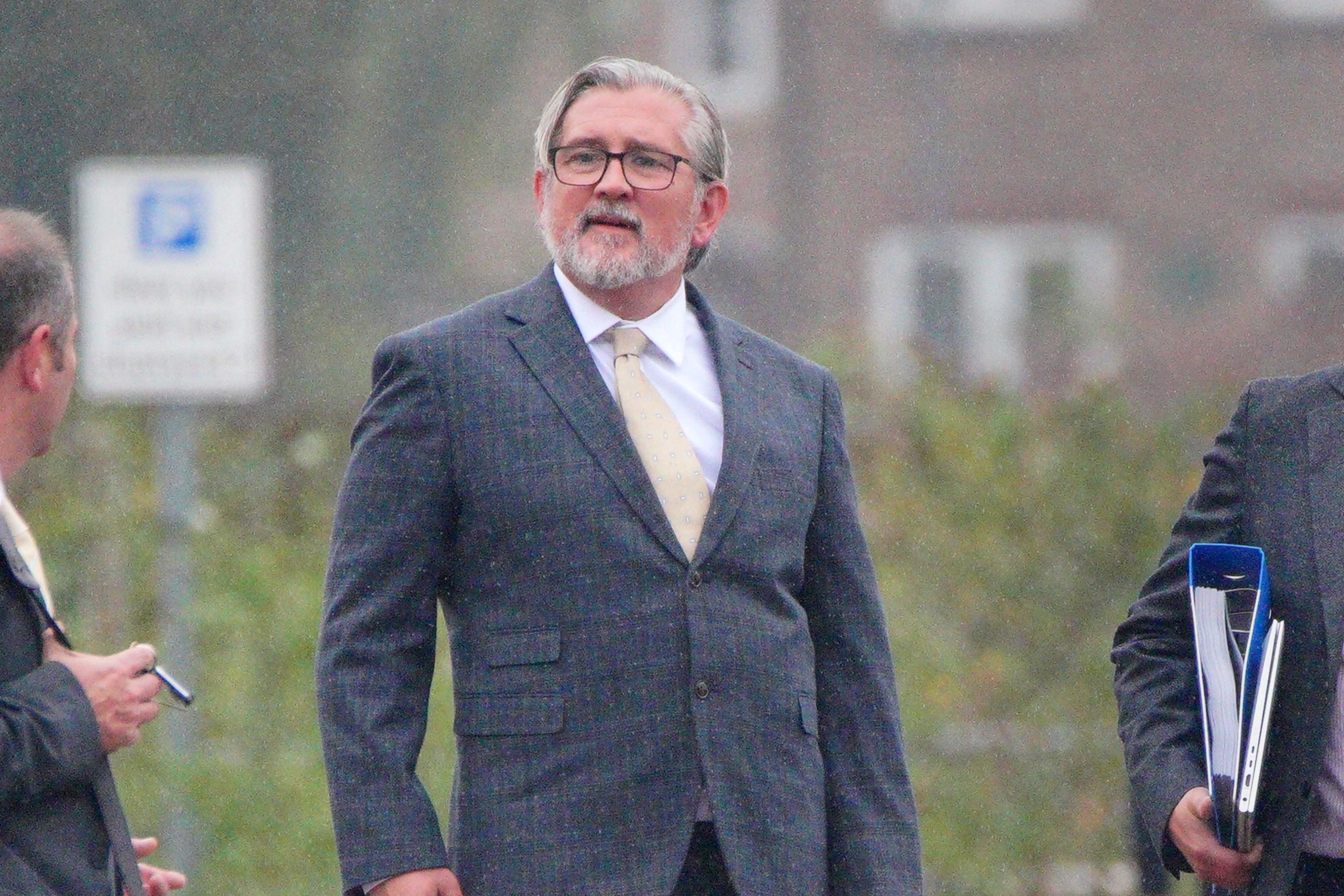Inspector sentenced for assaulting vulnerable boy outside police station
South Wales Police officer Dean Gittoes ‘unlawfully’ arrested the teenager for a terrorism offence.

A police officer who assaulted a vulnerable teenage boy after arresting him under the Terrorism Act has been sentenced.
Inspector Dean Gittoes, 49, of Oak Tree Rise, Merthyr Tydfil, “unlawfully” detained the 16-year-old outside Merthyr Tydfil police station on August 20 last year.
The incident was captured on a now-deleted YouTube video that was recorded by the youth, who claimed at the time to be “auditing” the station in South Wales.
The term “auditing” refers to a global online community of people who record and upload videos of government buildings, such as police stations.
At a hearing at Newport Magistrates’ Court, Gittoes was given a 12-month community order to complete 200 hours of unpaid work within a year.
He was also ordered to pay costs totalling £1275, which includes £250 compensation for the victim.
There was no justification for approaching him the way you did, no justification for putting your hands on him, and no justification for arresting him
Sentencing him, District Judge Sophie Toms said: “You assaulted a 16-year-old vulnerable boy who was filming for his YouTube channel.
“There was no justification for approaching him the way you did, no justification for putting your hands on him, and no justification for arresting him.
“It was a continued unlawful assault.”
Judge Toms said the offence was aggravated by the fact that it was an abuse of power and that Gittoes degraded the teenager by calling him a “clever little internet freak”.
“I, however, take into account the mitigation which is that you were of positive good character and that this was out of character for you, a one-off,” she added.
Gittoes’ defence barrister Christopher Rees had appealed to the court to grant a community order, and said: “It remains the situation that the defendant, as a result of his conviction, will lose his job as a police officer.
“Twenty-four years of public service. That is a significant punishment in its own right.
“This is a personal tragedy for Mr Gittoes, who is not only losing his career but also his good character.”
During his trial, it was found that Gittoes, who was off duty at the time, did not honestly believe the teenager was committing a terrorism offence.
Gittoes was said to have “lost all rational thought” and allowed his judgment to be “clouded” by his dislike of auditors and his ongoing frustration with his bosses over how a similar incident had been handled.
Guidance issued by South Wales Police and seen by Gittoes, after similar incidents across the force area, advised officers that members of the public have a general right to film government buildings on public property.
It also said that if a person identifies themselves as an auditor they should be ignored.
While there are occasions when the use of force is required, police officers are entrusted with the power to do so only if it is necessary, reasonable, and proportionate in the circumstances
Footage played to the court showed Gittoes, wearing a Swansea City football club shirt and black shorts, confronting the teenager seconds before grabbing the boy’s phone, putting him into an arm lock and leading him into the custody suite.
The youth’s distressed cries of pain and “He’s choking me” as Gittoes twists the neck of his hoodie can be heard, while the officer is heard telling him to “Stop struggling”.
Inside the custody suite he tells the boy: “You’re a clever little internet freak who’s about to learn the hard way.”
He confiscated the teenager’s phone which, without his knowledge, continued to record in his pocket.
His exchanges with colleagues can be heard in the videos, with Gittoes saying: “Six weeks ago I dealt with someone like this and the bosses so far think it’s a joke.
“Anyone I catch now, I don’t give them a second chance.
“I’ve got 36,000 people on the internet calling me a shit.
“I thought ‘F*** him’ this time. I’ll do what I should’ve done last time.”
He also spoke about having had a bad weekend before calling the youth “a clown”.
Gittoes was found guilty of assault on October 5 when Judge Toms concluded: “No reasonable person in possession of the same facts would have suspected the youth of terrorism.”
Independent Office for Police Conduct director for Wales Catrin Evans said: “While there are occasions when the use of force is required, police officers are entrusted with the power to do so only if it is necessary, reasonable, and proportionate in the circumstances.”
